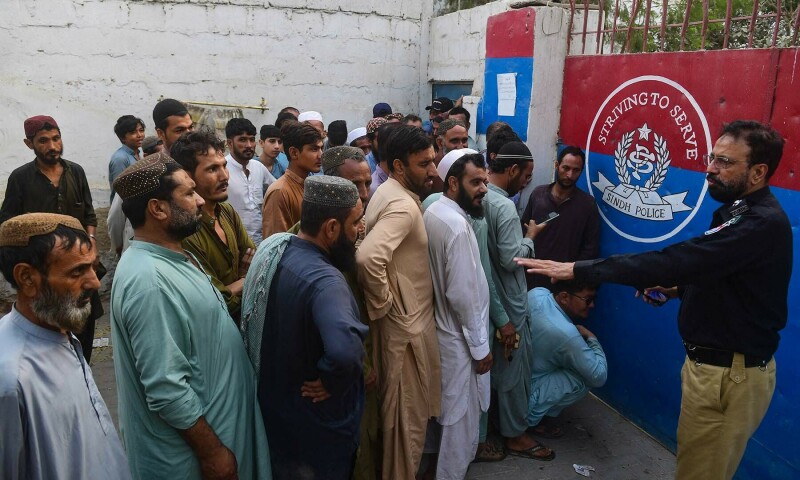Undocumented Afghans in Pakistan
KARACHI: After living in Pakistan for years, thousands of Afghans have gone underground to evade deportation as ordered by the government for undocumented foreigners, fearing persecution under a Taliban administration in their homeland, rights activists say.
“The gate is locked from the outside… we are locked inside, we can’t come out, we can’t turn on our lights, we can’t even talk loudly,” said a 23-year-old Afghan woman, speaking online from a shelter where she said dozens of others had holed up until earlier this week before moving on to a new hideout.
Local supporters put a lock on the gate so neighbours believe the house is unoccupied, said other inmates.
The woman, who is from the Afghan capital Kabul, is one of thousands believed by rights activists to be in hiding in Pakistan to avoid deportation under a government push for undocumented migrants to leave the country.
That includes over one million Afghans, many of whom the government says have been involved in militant attacks and crime.
Authorities began rounding up operations across the country after a deadline for voluntary exits expired on November 1.
Sijal Shafiq, 30, a Karachi-based human rights activist who helped vulnerable Afghans find shelter before Pakistan’s new expulsion policy, is one of several petitioners asking the Supreme Court to halt the deportation programme.
“I know several women, girls, who say they would rather die than return under the Taliban,” Shafiq says, adding that they all had professional dreams and ambitions which would be impossible to realise in Afghanistan, where women are forbidden from most jobs and can travel only with a male escort.
There was no immediate comment from a spokesperson of the Taliban-run administration on whether those returning would be screened or prosecuted under their laws. Pakistan’s foreign and interior ministries also did not respond to requests for comment about exempting at-risk individuals from deportation.
Pakistan has so far brushed off calls from the United Nations, rights groups and Western embassies to reconsider its expulsion plan or to identify and protect Afghans who face the risk of persecution at home.
Western embassies, including the United States, have also provided Pakistani authorities lists of Afghans being processed for possible migration abroad, and asked that they be exempt from expulsion, but the numbers are small compared to the people at risk.
‘Worse than prison’
Reuters spoke to a dozen undocumented migrants trying to stay under the radar of the nationwide sweep. Because of their situation, they declined to be identified or asked that their full names not be used.
“This is worse than prison,” said a 22-year-old Afghan man who said he ensured the lights remained off at night.
Some locals who are helping the Afghans arrange for food and water to be secretly smuggled into the shelter under the cover of night.
Afghan singer Wafa, 28, fears her days of refuge in Pakistan — where she moved shortly after the Taliban takeover over two years ago — are coming to an end because her visa has expired.
Speaking from a relative’s home in Islamabad, she said she hoped that she could either get asylum in France or Canada, or make Pakistan her home, as her profession of singing Pashto songs — which she started 11 years ago — is no longer acceptable in Afghanistan, where the Taliban have banned public music performances.
But she has yet to hear back, and applying for a visa extension remains unaffordable for her family. In the meantime, she does not leave the house to avoid widespread snap checks by Pakistani police.
“I am a singer… I know what will happen to me when I’m back,” Wafa said.
Saleh Zada, a 32-year-old singer in Karachi, said he moved from Afghanistan a year ago.
“I was singing in my village for friends and relatives; we had lots of parties, singing parties,” Saleh Zada said, speaking at a crowded low-income neighbourhood apartment belonging to his relatives. He showed Reuters video clips of him playing the harmonium and rubab, a string instrument, some of which were on social media.
“My family advised me to leave Afghanistan, I feared the Taliban,” he says, adding that the fear of being picked up by Pakistani police, because he does not have a valid visa, has kept him indoors for days.
“Life is difficult here (in Pakistan), but I have to save my life.”

